

Publications Regarding Coronavirus
Articles
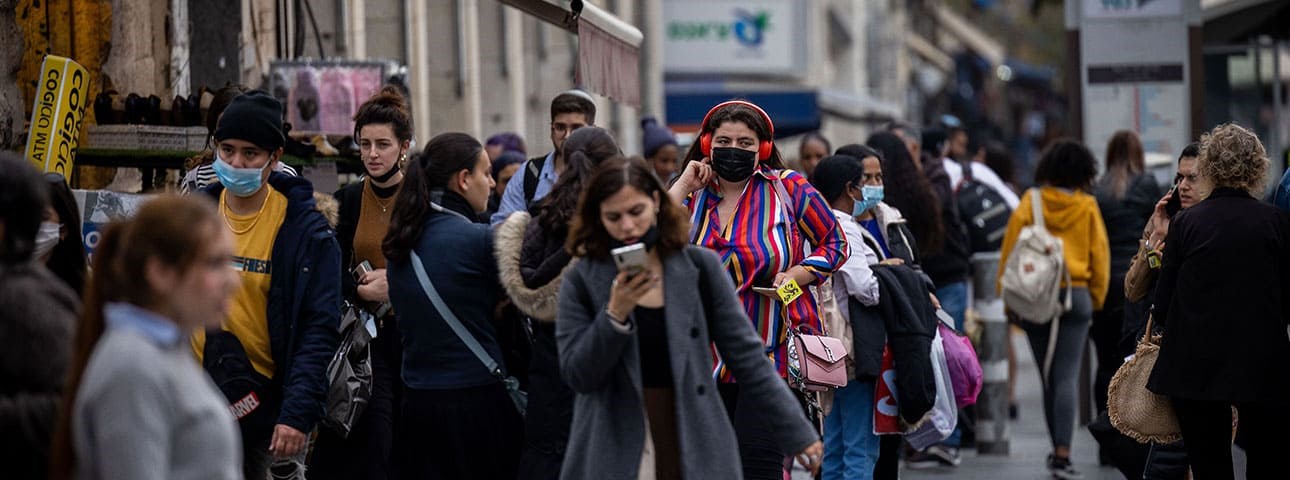
Israelis Out of Work as a Result of COVID-19
Written By: Daphna Aviram-Nitzan, Yarden Kedar
New IDI survey finds that 250,000 Israelis, who are not working, and not receiving unemployment allowances, might soon be forced to rely on supplemental income support.

The Collapsed Bridge Loan: Israel’s Shin Bet Location Tracking of Omicron Carriers
Written By: Adv. Amir Cahane
Israel reinstated contact-tracing activities by the Israel Security Agency to track carriers of the omicron variant of the coronavirus. Five days later, it halted the ISA’s contact-tracing activities, due to a lack of parliamentary support.
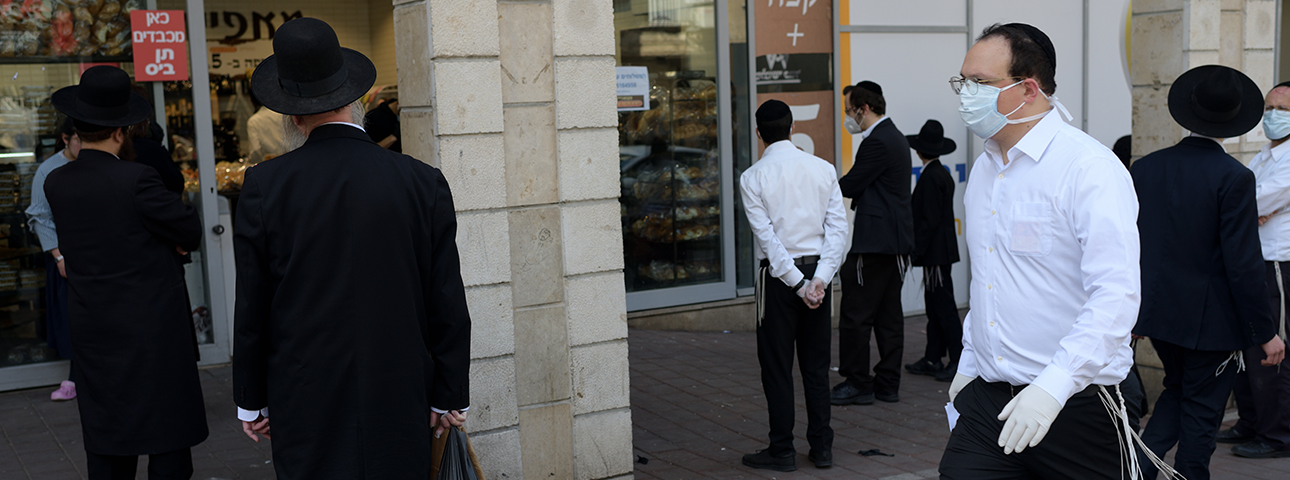
Stabilizing the Economy and Combatting COVID by Imposing Restrictions
Written By: Prof. Tamar Hermann, Dr. Or Anabi
After more than 100 days in office – Israelis want the new government to prioritize stabilizing the economy and combatting COVID by imposing restrictions on the unvaccinated

FDA Booster Decision Disappoints all Sides
Written By: Dr. Tehilla Shwartz Altshuler, Brigadier General (res.) Itai Brun
The FDA ruling regarding the Pfizer booster shot may have not been completely in-line with the Health Ministry's recommendation, but the open and transparent decision-making processes employed by the American agency holds important lessons for Israel

Why Don't We Talk to the Teachers?
Written By: Dr. Tammy Hoffman
The pandemic offers a chance for much-needed educational reform, but the hasty return is raising fears that the opportunities presented by the crisis for truly driving the education system forward into the 21st century are being missed

Using Electronic Bracelets
Written By: Dr. Tehilla Shwartz Altshuler
Electronic bracelets should be used only after restricting access to information and ensuring its security

Attention Facebook and Outbrain: Paid Content Is Now Political Ads in Israel
Written By: Dr. Tehilla Shwartz Altshuler
Israel's Central Election Committee made a landmark ruling: promoted content online - even to real news reports - is political advertising

Another Victim of the Pandemic: Our Fundamental Rights
Written By: Prof. Yuval Shany
There is no doubt that the Government has an obligation to employ meaningful measures against the pandemic, but the ease with which it was willing to infringe basic rights—is most disturbing

ISA Contact Tracing – Supreme Court Decision
Written By: Dr. Tehilla Shwartz Altshuler, Dr. Rachel Aridor-Hershkovitz
Israel's Supreme Court ruling on ISA's contact tracing is a reflection of the government’s decision-making processes during COVID

Israel at the Precipice: Will the March Election Bring an End to Israel’s Political and Economic Crisis?
Written By: Yohanan Plesner , Prof. Karnit Flug, Dr. Jesse Ferris
As Covid-19 continues to take Israeli lives and ravage its economy, seemingly immune to Israel’s impressive vaccination campaign, IDI President Yohanan Plesner and Professor Karnit Flug, Vice President, Research and William Davidson Senior Fellow for Economic Policy joined IDI's VP of Strategy Dr. Jesse Ferris on a JFN webinar to discuss the stakes and possible outcomes of Israel’s fourth election in less than two years.

The State of Israel is Stuck in the 1980s
Written By: Dr. Ariel Finkelstein
The pandemic has brought to the fore what was already clear - the public's trust in Israel’s local government is much higher than in the central government. It is high time more authority to be transferred to the care of local leaders.

On the Fringes of Ultra-Orthodox Society
Written By: Dr. Asaf Malchi
Government agencies have not geared up to effectively address the phenomenon of marginalized ultra-Orthodox youth

Israel Heads Toward Its Fourth Elections
Written By: Yohanan Plesner
After failing to meet the December 22 deadline for passing a budget, Israel is headed towards a once unfathomable fourth election in less than two years. The results of the last three elections in 2019-2020 did not dispel the political turmoil - we are about to see if the results from the fourth elections in 2021 will be any different.

IDI's 2020 Democracy Index: Trust in HMOs is Higher Than All Other Public Institutions
Israeli Democracy Index 2020 included a focus on Israel’s healthcare system and found higher levels of satisfaction with HMOs than with hospitals and public trust in Sick Funds is higher than in any other public institution surveyed

IDI's 2020 Democracy Index: Erosion in Israelis' Assessment of Police
Israeli Democracy Index 2020 reveals sharp decline in assessment of relations between the police and the public since the outbreak of COVID-19. A majority of Israelis believe that the police does not take criticism seriously

Wave No. 3 is Here – We Must Learn our Lesson
Written By: Ron Tzur, Prof. Nissim Cohen
Politicians and healthcare practitioners alike must learn from their experience and formulate strategy before it is too late.
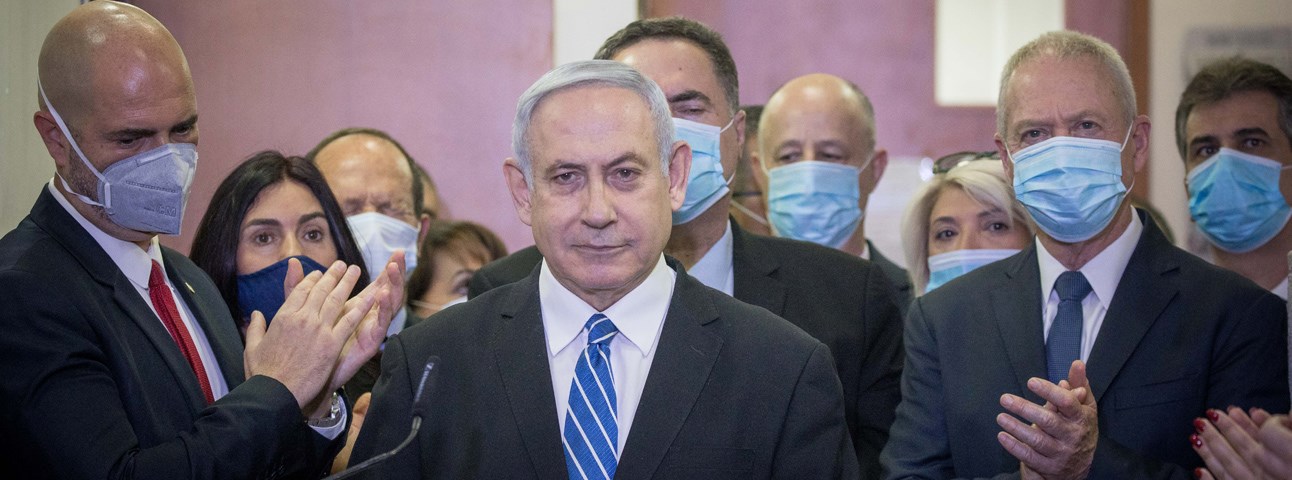
Of Whales and Members of Knesset
Written By: Prof. Yedidia Z. Stern
The real reason behind Israel's elections: The Knesset dispersed itself because one man, the prime minister, finds himself in a situation in which his fate depends on the courts.

Elections Should be Avoided
Defense Minister Benny Gantz: "Elections should be avoided, there should be a budget and a functioning government; I have no intention of replacing Avi Nissenkorn – he is doing a good job and we are committed to preserving democracy and judicial institutions."

2020 Eli Hurvitz Conference on Economy & Society – Recap of Day 3
The 2020 Eli Hurvitz Conference on Economy and Society concluded today following special addresses from the Alternate Prime Minister Benny Gantz and Chair of the Opposition MK Yair Lapid as well as discussions and deliberations with Minister of Health Yuli Edelstein, senior WHO and local health officials and mayors from throughout Israel.

Bolstering the Health System's Capacity to Manage Crisis Situations
As part of the IDI Eli Hurvitz Conference on Economy and Society, a session was held on December 16, 2020 with the participation of Health Minister Yuli Edelstein, Director General of the Ministry of Health Prof. Chezy Levy, and a number of experts in the field of health who are responsible for preparing the health system for emergencies and crises.
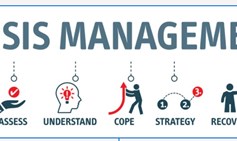
Governance in a Crisis
Written By: Prof. Nissim Cohen, Ron Tzur
The coronavirus pandemic can serve as a window of opportunity. In their new book Prof. Nissim Cohen and Ron Tzur present decision-makers a roadmap for how to better deal with crisis in Israel.
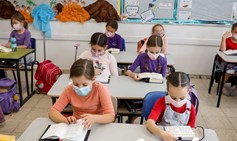
2020 Eli Hurvitz Conference on Economy & Society – Recap of Day 2
The second day of the 2020 Eli Hurvitz Conference on Economy and Society concluded following discussions and deliberations with IDI experts, leading academics, key regulators and senior officials from the public and private sectors.

The Education System: From Crisis to Opportunity
As part of the Israel Democracy Institute’s Eli Hurvitz Conference on Economy and Society, a panel took place with the participation of Minister of Education Yoav Galant and a number of education experts, focusing on preparing the education system for the post-COVID reality. Eli Hurvitz, executive director of the Trump Foundation, served as chair of the panel.

The Israeli Workforce: From Crisis to Opportunity
The labor market panel at the Israel Democracy Institute’s Eli Hurvitz Conference on Economics and Society dealt with the challenges and opportunities of the employment market in the post-Covid era.

Covid-19 Vaccines – How to Encourage Public Cooperation: Explainer
Written By: Prof. Yuval Feldman
With the vaccines for Covid-19 soon to be made available and in light of the high rates of Israelis who do not want to be the first to get the vaccine - IDI expert Prof. Yuval Feldman explains how to encourage public cooperations in getting COVID-19 vaccines.
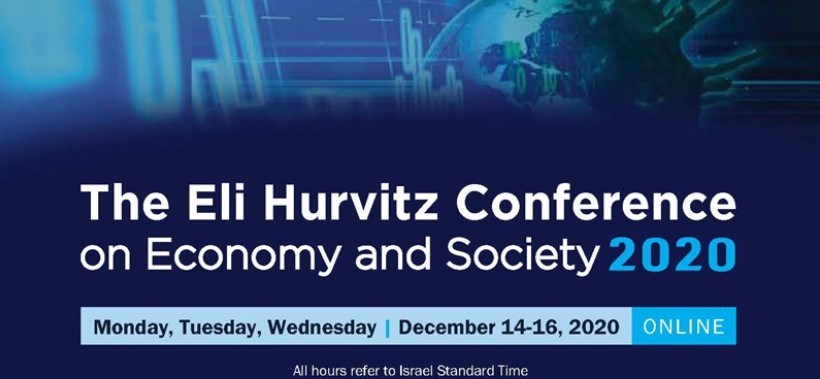
2020 Eli Hurvitz Conference on Economy & Society – Recap of Day 1
The first day of the 2020 Eli Hurvitz Conference on Economy and Society included discussions and deliberations with the Finance Minister Israel Katz, Prof. Amir Yaron the Governor of the Bank of Israel, Prof. Avi Simhon, the Chair of the National Economic Council, and senior private sector leaders from Israel and abroad.

From Global to Local: The Impact of the Global Crisis on Israel
As part of the Israel Democracy Institute’s Eli Hurvitz Conference on Economy and Society, a panel was held (Dec. 14th) on the implications of the global crisis on Israel, including the labor market and the question of the budget, US–Europe–Israel relations in the Biden era, changes in times of crisis and routine, and preparedness for future challenges.

Regulators in Conversation: Financial Risk and Climate Change
"If you look at the S & P, close to 86% of companies today report on Environmental, Social, and Governance (ESG) compared to a decade ago" said Anat Levin, CEO, BlackRock Israel, on the topic of how the global financial market adapts itself to ESG

From the Corona Crisis to the Climate Crisis
Chen Lichtenstein, Chief Financial Officer, Syngenta Ventures: “Tthe challenges and complications a small country like Israel faces, is a drop in the ocean by comparison. Israel should be able to easily make decisions of the same explicit impact – the word zero is critical.”

D-Gs in Conversation: A Government Vision for Israel 2050
For the past two years, the Israel Democracy Institute, in collaboration with the Ministry of Environmental Protection, the Ministry of Transport, the Ministry of Energy, the Ministry of Economy, the Ministry of Finance, and the OECD, has been leading a multi-sectoral and cross-ministerial process.

From Recession to Growth: Macroeconomic Policy
The Israel Democracy Institute’s Eli Hurvitz's Conference on Economics and Society opened today with a session titled "From Recession to Growth: Macroeconomic Policy" focusing on ways to accelerate Post-COVID economic growth in Israel.
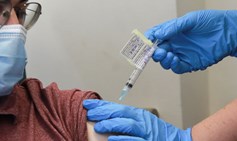
Incentivizing Compliance is a Great Approach but Must be used with Care
Written By: Prof. Yuval Feldman
Incentivizing compliance could have a negative impact on those who view being tested for the coronavirus as an act of civic responsibility

Leaders' Credibility Low
Written By: Prof. Tamar Hermann, Dr. Or Anabi
Our monthly Index found that both Prime Minister Netanyahu and Alternate Prime Minister Benny Gantz have low or very low credibility among Israelis.

Israel’s Nation-state Law Isn’t ‘Declarative,’ It Does Real Damage
Written By: Dr. Amir Fuchs
"Legislative declarations do not remain purely "declarative". They have consequences." Dr. Amir Fuchs explains.

Is Israel Headed to 4th Elections? Briefing
Written By: Yohanan Plesner
Yohanan Plesner, President of the Israel Democracy Institute on today’s preliminary vote to disperse the Knesset: "Today's vote served as the opening shot in the 'blame game' with both Gantz and Netanyahu seeking to frame the other side as dragging the country towards a fourth elections as COVID numbers begin to rise again."
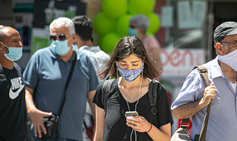
We’re All in This Together. Are We?
Written By: Prof. Yuval Feldman
Prof. Yuval Feldman, a senior fellow at the Israel Democracy Institute, utilizes behavioral analysis of regulation, enforcement and compliance to understand how trust in the state has affected the response to the COVID pandemic in Israel and beyond
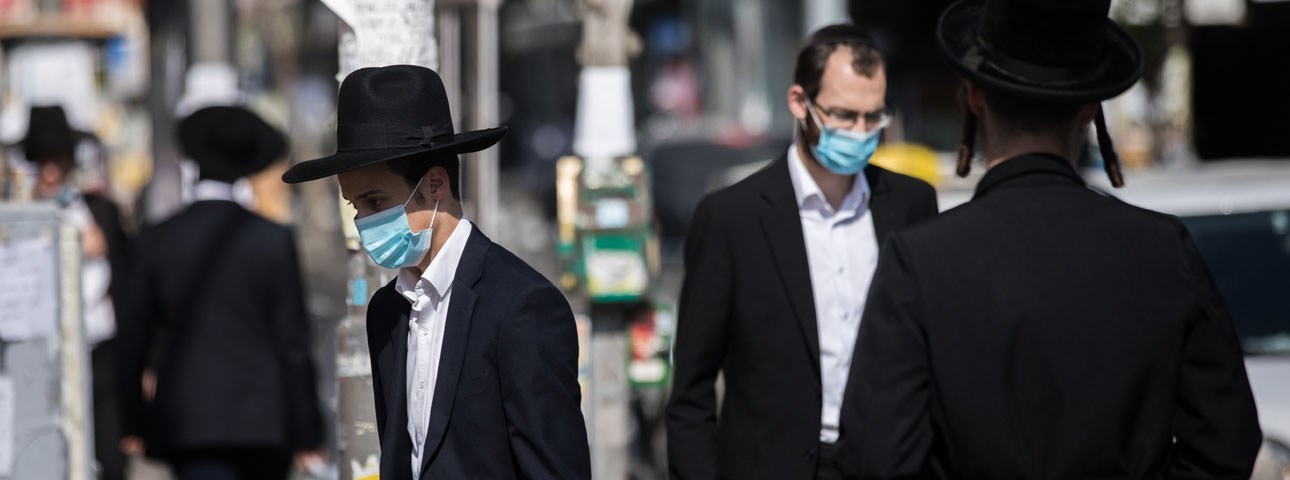
Haredim Trust Rabbis More Than the Health Ministry on COVID-19
Written By: Prof. Tamar Hermann, Dr. Or Anabi
62% of Haredim have very little or no confidence in Prime Minister Netanyahu's Handling of COVID-19; 60% think decision makers are guided mostly or only by political concerns

National Security and Democracy Day 2
The second day of the Israel Democracy Institute's Center for National Security and Democracy annual conference, held in partnership with the Konrad Adenauer Stiftung (Israel office), concluded today (Wednesday). The online conference focused on public trust in the IDF, the militarization of a civilian crisis, the IDF model of service and gender equality in the military.

National Security and Democracy Conference Day 1
IDI's annual conference on National Security and Democracy, held in partnership with the Konrad Adenauer Stiftung (Israel office), convened top officers and academic experts to discuss the changing relations between the IDF and Israeli society and draw lessons for the future from the military’s unprecedented involvement in the civilian COVID-19 crisis.
From Top Down to Bottom Up
Written By: Dr. Tehilla Shwartz Altshuler, Dr. Rachel Aridor-Hershkovitz
Israel Democracy Institute Experts to the Chair of the Foreign Affairs and Defense Committee: “The only way to return to normal routine is through regulation and by encouraging the use of locally-developed apps in malls, workplaces and in educational institutions"

Large Majority Think IDF Should Manage Coronavirus Crisis
A special survey reveals that the public perceives the IDF as a skilled army and is prepared to face major military threats

Israelis Wary about Partaking in First Round of Vaccinations
Written By: Prof. Tamar Hermann, Dr. Or Anabi
This survey is the fourteenth in a special series examines the public attitudes towards government policies relating to the coronavirus outbreak and to the economic fallout from the pandemic

70% of Jewish Israelis: A Second Trump is Preferable for Israel’s Interests
Written By: Prof. Tamar Hermann, Dr. Or Anabi
When it comes to the their country's interests, Israelis increasingly think that Donald Trump is the preferable US presidential candidate.

Ultra-Orthodox Non-Compliance Rests on Fear
Written By: Dr. Shuki Friedman
In the second wave of the pandemic it seems that many ultra-Orthodox rabbis are assigning higher priority to 'customer retention' than to the clear halakhic imperative to preserve health and life

An Organized Civil Disobedience Campaign
Written By: Prof. Yedidia Z. Stern
Rabbi Kanievsky’s decision to disregard the law and open ultra-Orthodox schools is the first time in Israeli history that we are seeing something that approaches a call for mass civil disobedience orchestrated by a key public figure.
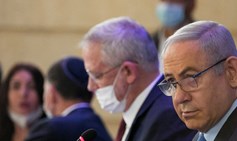
Majority Think 2nd Lockdown was Politically Motivated
Written By: Prof. Tamar Hermann, Dr. Or Anabi
55 percent of Israelis believe that the second lockdown was solely or mainly politically motivated; The majority of the public continues to express confidence in Prof. Gamzu; Continued increase in public concern about the economy

Haredim and Coronavirus: Policy Recommendations for Exit from Second Lockdown
Written By: Dr. Asaf Malchi, Dr. Gilad Malach, Dr. Shuki Friedman
IDI experts present analysis of recent behavior of the ultra-Orthodox sector and present recommendations for an exit strategy from the lockdown, to be applied in the coming weeks and months.

The Ultra-Orthodox and the Corona Crisis: Briefing
Written By: Yohanan Plesner , Dr. Shuki Friedman, Dr. Gilad Malach
IDI experts analyze recent behavior of the ultra-Orthodox sector and present recommendations for a staggered exit strategy from the lockdown.

Restrictions on Demonstrations: An International Comparison
Written By: Dr. Guy Lurie, Dr. Amir Fuchs
As democracies struggle with the balance between health restrictions and freedom of assembly, Israel has limited protests to a one kilometer radius from their homes during the country's lockdown. How does this compare to other democracies?

What Do You Do When there’s a Hole in the Boat?
Written By: Colonel (Res.) Dr. Liron A. Libman
The handwriting was on the wall. Since the founding of the State, rabbis have served as middlemen between the government and the ultra-Orthodox. We must acknowledge that this approach has failed miserably.

At the Crossroads: The Ultra-Orthodox Community and Israeli Society
Written By: Dr. Shuki Friedman
The coronavirus crisis proves once again that the lives of all Israelis are intertwined with those of the ultra-Orthodox and the country cannot be sustained with an autonomy living behind closed walls. Without shared responsibility for public health - 'normal life' will not be possible the post-COVID-19 era

Protests vs. Prayers vs. Weddings
Written By: Prof. Yuval Shany
As the contentious debates about protests and prayers continues in Israel, we must recognize that there is no room for imposing unjustified restrictions on the basic rights of one group of citizens, simply because this will make it easier to impose justified restrictions on the basic rights of another

Legislation to Curb Protests is Unnecessary
IDI Leadership on Law Limiting Protests: "A Violation of the Most Basic Tenets of Democracy"

From Politics to a Holy War
Written By: Dr. Shuki Friedman
Political positions, ideologies and worldviews, support for the Prime Minister or opposition to him—have been transformed into religious beliefs - a dangerous development for the future of Israeli society

Only 27% of Israelis Trust PM Netanyahu to Lead Effort Against COVID-19
New IDI survey: Only 27% trust PM Netanyahu to lead efforts against COVID-19. 32% support current government restrictions & 29% supporting additional measures. 61% of Jewish Israelis don't plan on attending any Yom Kippur services.

Most Israelis Support Suspending Demonstrations as Part of Lockdown
Written By: Prof. Tamar Hermann, Dr. Or Anabi
While a third of the Israeli public supports the current restrictions imposed by the government and an additional 29% support putting additional measures into effect, trust in the Prime Minister's handling of the crisis has fallen to a new low. Most Israelis also believe that mass demonstrations should be banned during the lockdown.

Cries of Protest vs. Cries of Prayer
Written By: Dr. Shuki Friedman
Protest is essential during lockdown. So is prayer. Even if freedom of expression is constitutionally ranked above communal prayer, tipping the scales between them undermines public confidence.
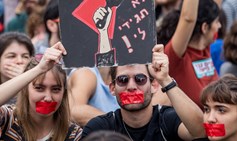
"A Society without Culture is a Needy Society"
At a session of a conference on "Policy or Culture?” held by IDI and the Sapir Academic College, Minister Chili Tropper spoke of the need for culture to fortify society and not fall victim to divisive discourse
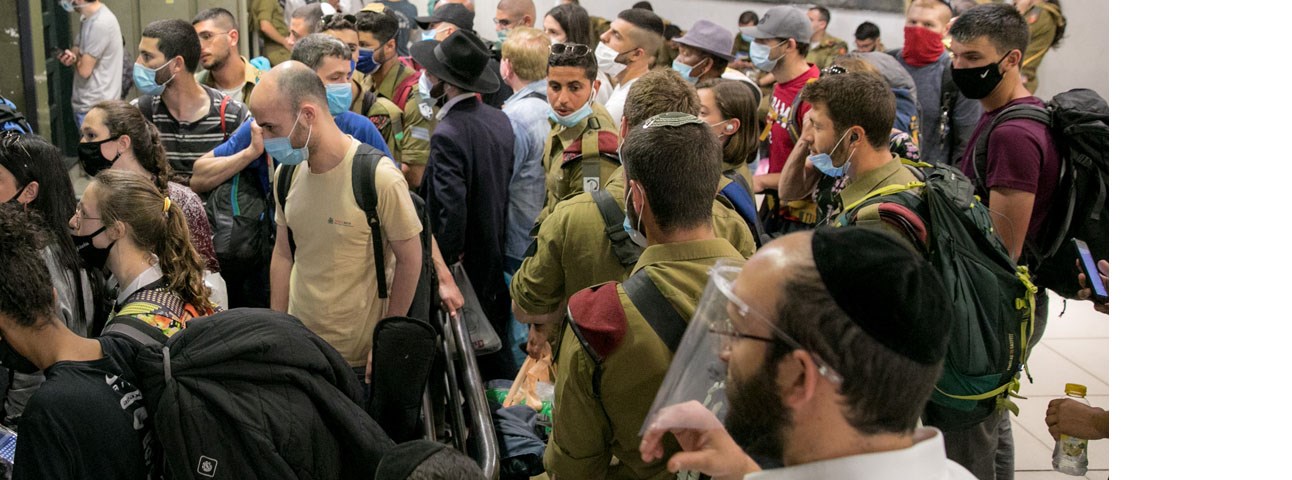
Israeli Tribalism Will Be the Death of Us
Written By: Dr. Shuki Friedman
As Israel has grappled with the resurgence of COVID-19, tribalism has become more fierce as the country shifted from a state with a deep-seated sense of solidarity to a society in which the interests of one’s own sector comes first.

Appointments Now!
Written By: Prof. Yuval Shany
Senior governmental positions remain unfilled as political bickering has delayed appointments. Israeli law lays out a clear process for how such appointments must be made and the government should do so without further delay.
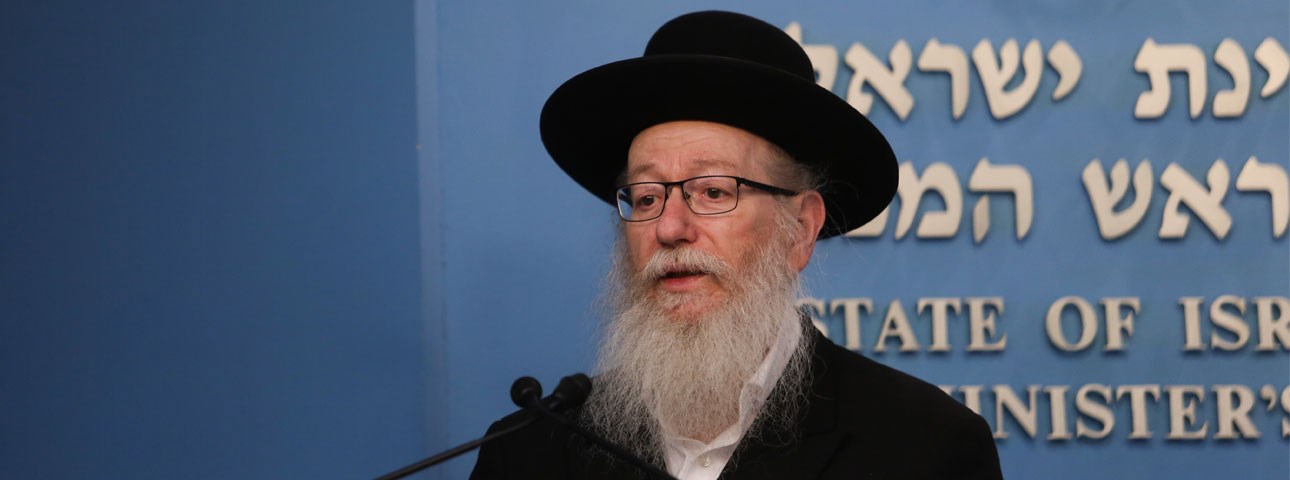
Haredim - High Level of Distrust of Government Policies
Dr. Gilad Malach, Director of IDI's Ultra-Orthodox in Israel program on MK Ya'acov Litzman's resignation from the Cabinet: "Indicative of a very strong sentiment among the ultra-Orthodox community where there is currently a high level of distrust of government policies."

The Israeli Voice Index – August 2020
As Israelis approach the Jewish new year, they are skeptical about the country's collective mood but personally optimistic about the future. The Israeli public is also pleased about the expected treaty with the UAE and skeptical about the longevity of the government.

Israelis Pessimistic on the Country's Outlook but Hopeful on Peace with UAE
Written By: Prof. Tamar Hermann, Dr. Or Anabi
With the Jewish New Year approaching, Israelis are pessimistic on the country's outlook but hopeful on peace with UAE; 41% of Israelis think the upcoming year will be worse than the last; 68% of Israelis think that Israel will be heading to elections when the budget compromise between Likud and Blue and White expires in December.

Working from Home: A Survey of Patterns and Attitudes
Written By: Daphna Aviram-Nitzan, Rachel Zaken
One of the very few pieces of good news resulting from the corona crisis is the increase in people working from home (WFH). Unfortunately, workers from lower socioeconomic groups are not benefiting from this change.

Haredim Lose Faith in their Political Parties
Written By: Dr. Gilad Malach
Ultra-Orthodox communities have been very critical of their political leaders for not advocating vigorously enough on their behalf at the beginning of the COVID crisis. Now, the ultra-Orthodox parties are at the forefront of the contentious demand to permit mass travel to Uman.
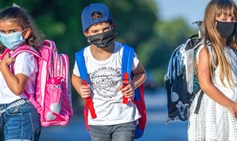
Corona Survey #11
Written By: Prof. Tamar Hermann, Dr. Or Anabi
IDI's latest coronavirus survey found 45% of Israelis pessimistic about the country's ability to overcome the COVID-19 crisis. The survey also found that if opened, 74% of Israelis plan on sending their children to school

Public Attitudes Toward Vocational Training During COVID-19
Written By: Daphna Aviram-Nitzan, Yarden Kedar
An IDI survey examines public opinion on Israelis preferred areas of study and participation when undergoing vocational training during the economic crisis resulting from the coronavirus.
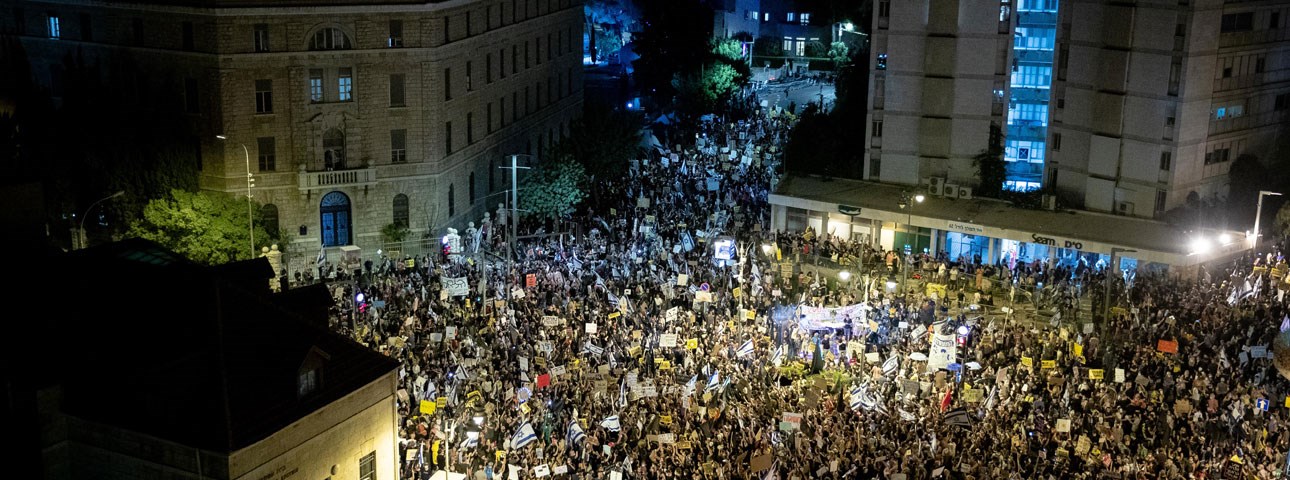
Only 25% of Israelis Approve of Netanyahu's Handling of the Corona Crisis
Written By: Prof. Tamar Hermann, Dr. Or Anabi
The Israeli Voice Index for July 2020 found that 58% of Israelis identify with the protests against the government’s economic policies while 45% identify with the elements focused on personal opposition to Prime Minister Netanyahu

Digital Contact Tracing and the Coronavirus: Israeli and Comparative Perspectives
Written By: Dr. Tehilla Shwartz Altshuler, Dr. Rachel Aridor-Hershkovitz
IDI experts' report on digital contact tracing highlights its importance as a helpful tool in addition to human epidemiological investigations

Tisha Be'av: A Social Tragedy From Then to Now
Written By: Prof. Yedidia Z. Stern
Every generation has its own barns, whose stock is the source of its national resilience. We have a supreme obligation to protect them against those who would set them afire to promote their ideology

Climate Crisis and Corona Virus Special Survey
Written By: Daphna Aviram-Nitzan
Do Israelis want their government to improve the economy's readiness for the climate crisis? IDI's special survey on public attitudes to the climate crisis says that an overwhelming majority (89%) says "yes."

Two Cities Two Protests
Written By: Prof. Tamar Hermann
The Jerusalem's police force's aggressive stance, with its water cannons at the ready, play a key role in amplifying public awareness of the recent protests in the capital.

How to Generate Demand for Workers
Written By: Daphna Aviram-Nitzan
A growing number of countries around the world have realized that vocational training and subsidies for the training period can increase the demand for workers. Israel's government should follow this lead, while at the same time accelerating the pace of development of infrastructure projects, to increase the demand for skilled workers.
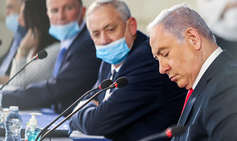
Government's Coronavirus Law is Impractical and Undemocratic
Written By: Dr. Amir Fuchs
Legislation giving ministers total authority over decision-making sets dangerous precedent for Israeli democracy and chaotic decision making will surely diminish the already-dwindling public trust in both government and future emergency regulations
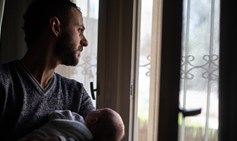
How COVID-19 Changed Fatherhood
Written By: Dr. Or Anabi
A survey by the Israel Democracy Institute found during the lockdown less than 20% of working men continued working as usual in the workplace. What does this mean for the future of work-life balance among Israeli couples?

Is Israel's Social Protest Movement About to Emerge?
Written By: Prof. Tamar Hermann
As trust in the country's leadership erodes, the economy suffers, and the coronavirus surges, Israel is ripe to revolt, but probably won't

The Jewish World and the Coronavirus Crisis
Written By: Dr. Shuki Friedman, Gabriel Abensour
Jewish communities around the world have been hard-hit by the coronavirus and are still struggling to deal with its implications. In an in-depth study, Dr. Shuki Friedman and Gabriel Abensour analyze how the pandemic has created challenges for halakha (Jewish law) and upended communal life and what these communities should be preparing for when this crisis finally subsides.
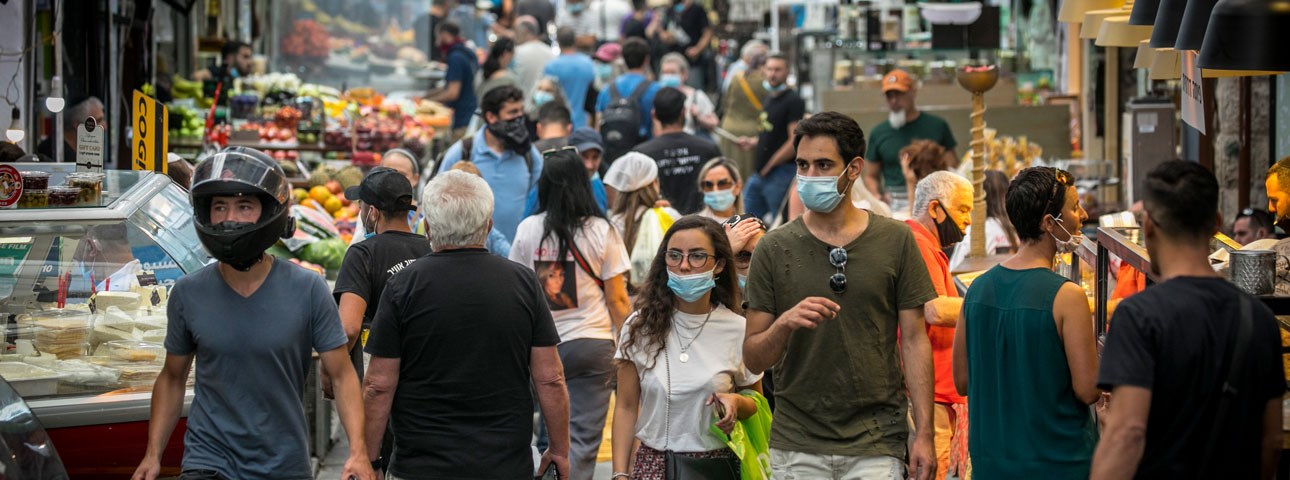
Israel in Times of Corona
Written By: Prof. Tamar Hermann, Dr. Or Anabi
A special survey, the tenth in this series, by the Guttman Center for Public Opinion and Policy Research at the Israel Democracy Institute examined public opinion about government policies relating to the coronavirus outbreak and the economic fallout from the pandemic.

Big Brother is Always Watching-Pandemic Surveillance Makes it Scarier
Written By: Dr. Tehilla Shwartz Altshuler
IDI's Dr. Tehilla Shwartz speaks with Amanda Borschel-Dan on a Times of Israel podcast about the resurgence of COVID-19 cases and how Israel's government is tracking them.

No More Shame - No More Responsibility
Written By: Prof. Yedidia Z. Stern
Now more than ever Israel needs a leader who will bolster its inner strength - is the leadership up to the task?
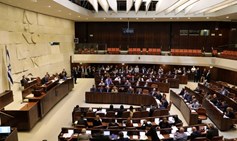
Government Unable to Manage Corona Crisis
"This fast-tracked legislation, that is intended to allow the cabinet to put further restrictions in place without approval from Knesset committees, is yet another example of chaos and an inability of the government to manage the coronavirus crisis."

Israel Reauthorizes Shin Bet’s Coronavirus Location Tracking
Written By: Adv. Amir Cahane
In its attempts to contain the spread of the novel coronavirus, Israel has employed a measure that has not been used by any other democratic country. Since mid-March, the Israeli government has sought the assistance of the General Security Service (also known as the Israeli Security Agency, the ISA, the Shabak or Shin Bet) in conducting epidemiological investigations by providing the Ministry of Health with the routes of coronavirus carriers and lists of individuals with whom they have been in close contact. The ISA queries its communication metadata database to identify the route of confirmed carriers and the individuals with whom they have been in close contact.

Ireland Finally Has a Government!
Written By: Prof. Ofer Kenig
A tale of two unity governments: The coalition agreement that formed Israel's unity government is all about forcing the parties to live up to the deal. Ireland's is all about policy.
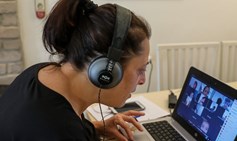
Working from Home: Pre-and Post-Coronavirus
Written By: Daphna Aviram-Nitzan, Rachel Zaken
The coronavirus has made working from home much more prevalent, and has many advantages, including improving efficiency and providing workers with more flexibility. But how do we ensure that it does not increase wage disparities and provide even more advantages to those who are already the higher earners? IDI experts weigh in with recommendations to ensure that all sides benefit

The Crisis Has Hit at the Core of the Labor Market
Written By: Daphna Aviram-Nitzan
The current crisis threatens the heart of the labor market with 400,000 workers between the ages of 35-54 designated as "temporarily absent from work" due to the coronavirus
ISA Surveillance Provides a False Sense of Security
Following the Cabinet's decision to introduce the ISA Surveillance Law to the Knesset, Dr. Tehilla Shwartz Altshuler, says that "use of ISA surveillance provides a false sense of security."
ISA Tracking Should Not Be Resumed
Dr. Tehilla Shwartz Altshuler on the Knesset Foreign Affairs and Defense Committee debate on contact tracing: "Permission to reintroduce the ISA's tracking program should not be granted."
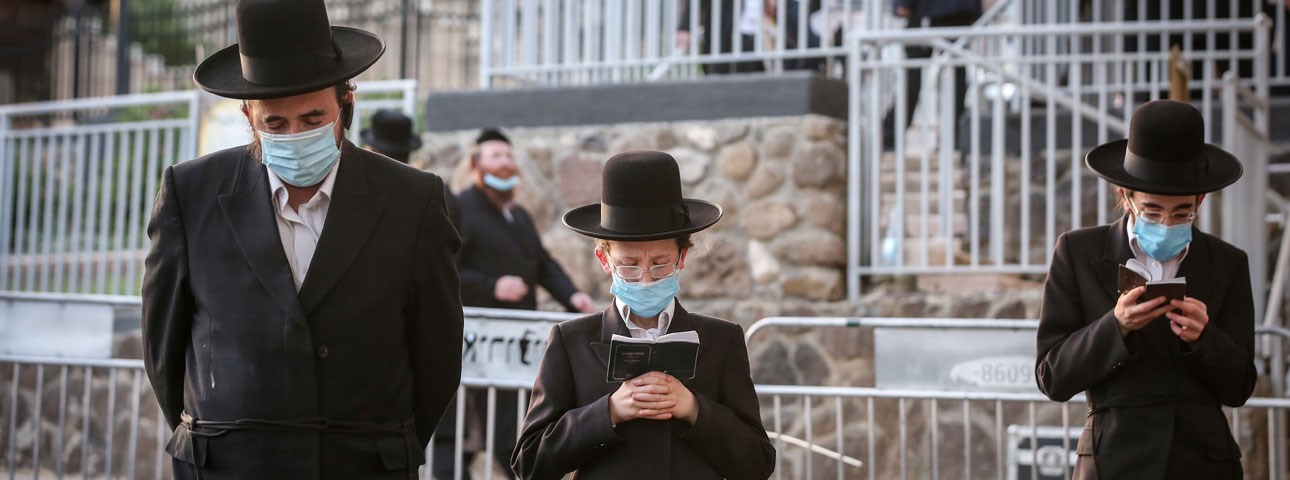
Integration of the Ultra-Orthodox the Wake of the Coronavirus
Written By: Dr. Gilad Malach, Ruben Gorbat
In wake of the coronavirus pandemic, IDI experts present a status report on the current state of Israel's ultra-Orthodox community as well as policy recommendations for how to better integrate them into Israeli society
Discontinuing the ISA Tracking
Dr. Tehilla Shwartz Altshuler on why she supports the decision to halt ISA surveillance of covid-19 positive Israelis.
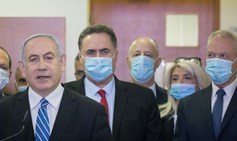
Without Trust, There Can Be No Compliance
Written By: Dr. Dana Blander
The Israeli public deserves leadership that isn't weighed down by a track record of incoherent instructions, selective enforcement, and politicians’ own failure to comply
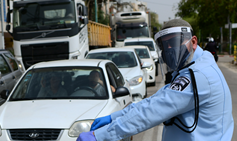
Coronavirus Bill - Professional Opinion Excerpts
Written By: Dr. Amir Fuchs, Prof. Mordechai Kremnitzer, Adv. Lila Margalit
The proposed bill, which is slated to replace the existing emergency regulations, limits Knesset oversight - the very reason this 'primary legislation' is so necessary

Half of Israelis Favor Applying Sovereignty
Written By: Prof. Tamar Hermann, Dr. Or Anabi
The Israeli Voice Index for May 2020 found that 50% of the public supports applying Israeli sovereignty over parts of the West Bank (Judea and Samaria) with the U.S. administration’s support (25%) and without American backing (25%)

Who Will Investigate the Coronavirus Crisis?
Written By: Dr. Dana Blander
There have been calls to investigate the government’s handling of the coronavirus crisis – but who should do the investigating?
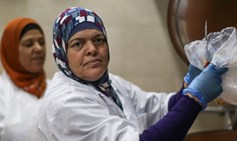
Arab Society in the Wake of the Coronavirus: Policy Recommendations
Written By: Dr. Nasreen Haddad Haj-Yahya, Ayman Saif
After three contentious election campaigns, Israel's new government has been sworn in. IDI's experts weigh-in with their recommendations on the most important issues on the agenda. Dr. Nasreen Hadad Haj-Yahya and Ayman Saif on the urgent challenges facing the 35th government to address the significant economic gaps that between Israel's Jewish and the Arab populations.
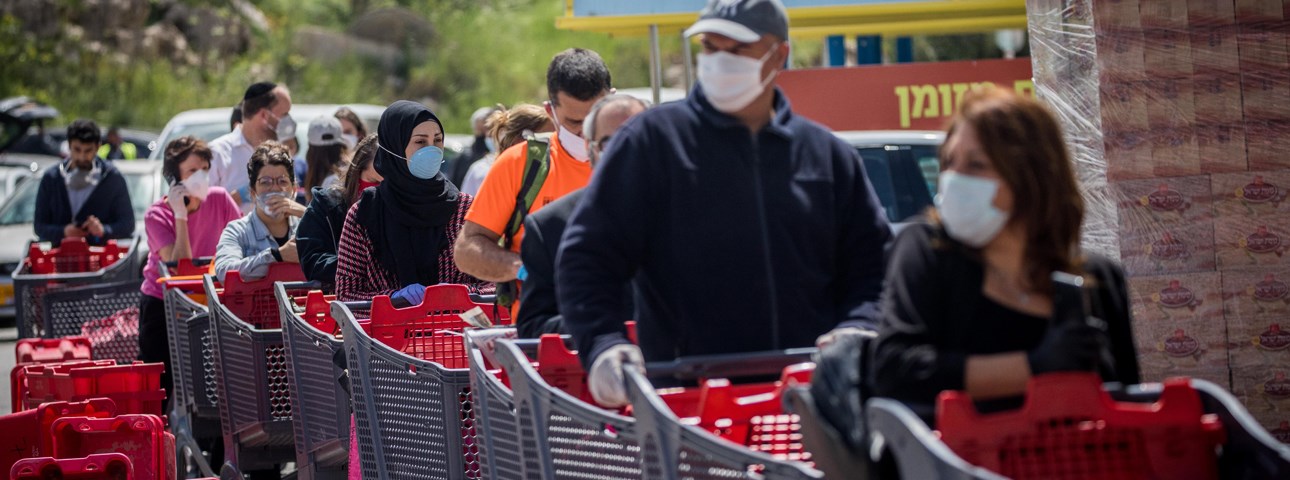
Second Wave is a Matter of Time
More than half of Israelis think a second wave is a matter of time and 39% think that the return to normalcy is too fast
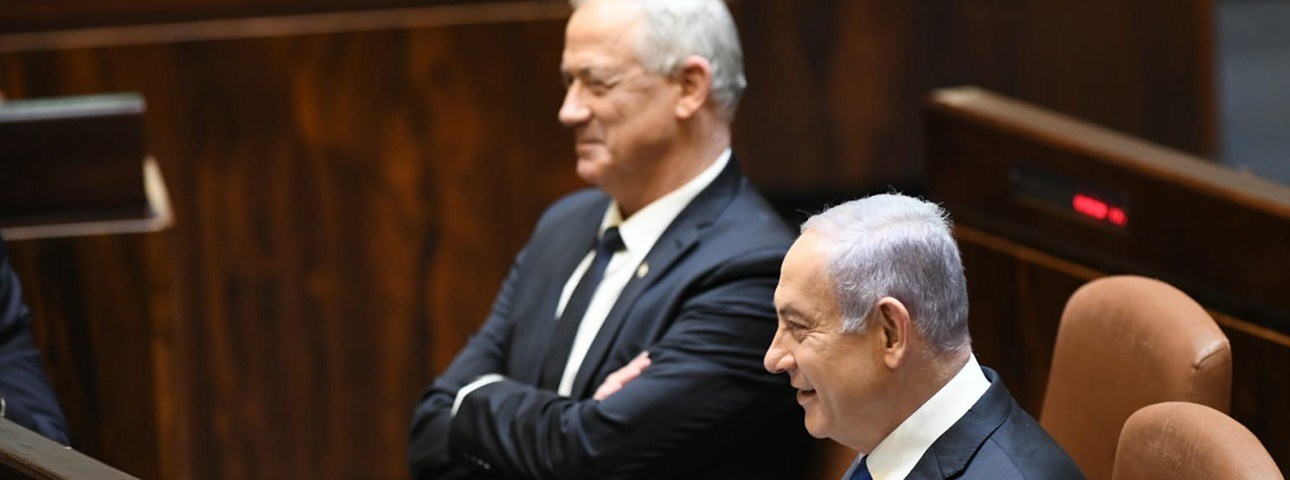
Israel’s Cease-Fire Government Should Promote Healing, Not Division
Written By: Yohanan Plesner
Netanyahu and Gantz could use their unity government to put in place a 'democratic ceasefire' and speed Israel’s economic recovery rather than entrenching political deadlock.

Improving Israel's Security and Resilience
Written By: Prof. Amichai Cohen
After three contentious election campaigns Israel's new government has been sworn in. IDI's experts weigh-in with their recommendations on the most important issues on the agenda. Prof. Amichai Cohen writes about the matters that should be at the top of the agenda to improve Israel's security and resilience.

No Justification Whatsoever
Written By: Prof. Ofer Kenig
The establishment of the Netanyahu-Gantz government required many compromises.That being said, there is absolutely no way to justify the extravagant size of the new government

Don’t Call It a Comeback
Written By: Dr. Shany Mor
In mature democracies, parliaments are regaining their relevance in the coronavirus era.
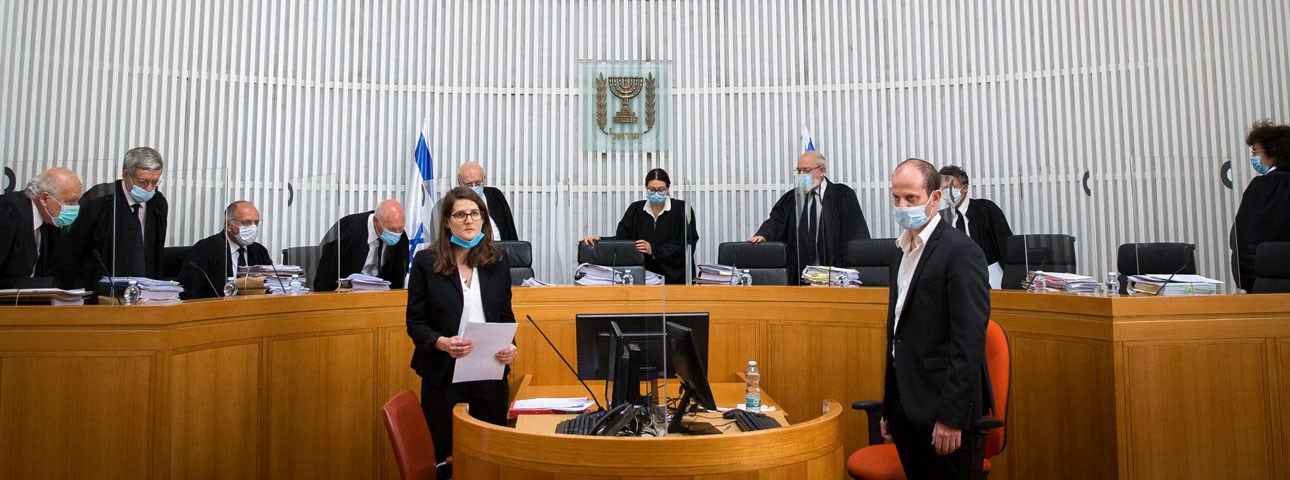
Sanity Prevails: 11 to 0
Written By: Prof. Yedidia Z. Stern
Israel's High Court handed down a unanimous decision - and the public saw for themselves that there was no devious plot to undermine the separation of powers.

Over Half of Jewish Israelis Support Annexation
Written By: Prof. Tamar Hermann, Dr. Or Anabi
The Israeli Voice Index for April 2020, found that 52% of Jewish Israelis support Prime Minister Benjamin Netanyahu's stated policy of extending Israeli sovereignty in the West Bank, however only 32% believes Israel will move forward with this in the coming year.
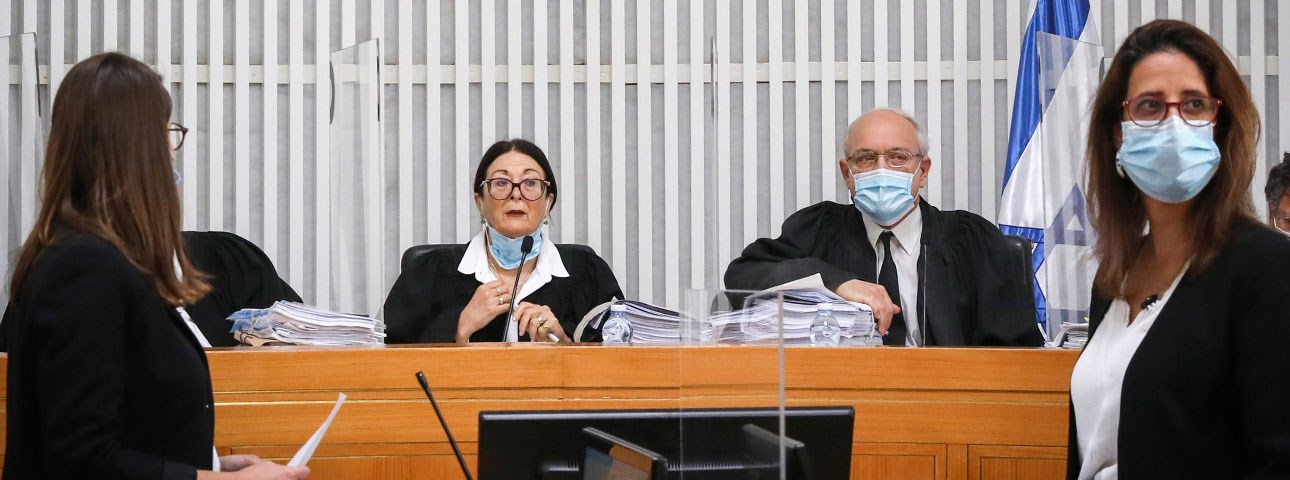
Moment of Truth for Judicial Restraint
Written By: Prof. Yedidia Z. Stern
Many Israelis attribute a left-wing bias to the Supreme Court and accuse it of extreme activism, but the hearings that were broadcast live highlight the vast gulf between the Court's image and the reality
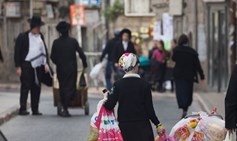
The Impact of the Corona Crisis on the Ultra-Orthodox Community
Written By: Prof. Tamar Hermann, Dr. Or Anabi
The corona crisis has had serious economic repercussions for many households, including for members of Israel's ultra-Orthodox community. Survey findings indicate that while most of the ultra-Orthodox plan to cut back on their current expenditures, there are also quite a few households in which one of the spouses plans on increasing the scope of his or her employment, and in about one-fifth of the households- one of the spouses who has not previously worked, intends to now join the workforce.

Coronavirus and Unemployment in Israel
Written By: Daphna Aviram-Nitzan
Daphna Aviram Nitzan presents an analysis of unemployment in Israel in the wake of the coronavirus pandemic.

Protecting our Privacy: Alternatives to ISA Tracking
Written By: Dr. Tehilla Shwartz Altshuler
ISA's tracking of civilians is being discussed in the Knesset Subcommittee for Secret Services. As Israel is beginning to emerge from a state of emergency, less invasive alternatives should be adopted.

The Rotation Agreement — One State, Two Governments
Written By: Dr. Assaf Shapira
The rotation mechanism agreed upon creates a governmental structure, unprecedented neither in Israel or anywhere else

PM Under Indictment - A Dangerous Precedent
Allowing Netanyahu to form a government would constitute a conflict of interest and would result in a negative and irreversible precedent for the rule of law
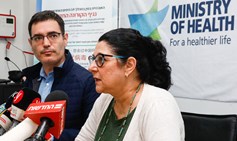
Most Israelis Trust Government Health Officials on Corona
IDI Coronavirus Survey finds that nearly half the population is pessimistic about Israel’s economic prospects

Decade-Long High in Israelis' 'Sense of Belonging'
Special IDI Independence Day survey 92.5% of Jewish-Israelis and 77% of Arab-Israelis feel a part of Israel and its problems.

The Alternative Government
Written By: Dr. Amir Fuchs, Dr. Assaf Shapira
IDI researchers testified before the Knesset's Special Committee: Personal and retroactive changes should not be made to legislation regarding the Prime Minister's legal status

Two Hedgehogs and a Hydra
Written By: Prof. Yedidia Z. Stern
This is a familiar plague: rewriting the game rules of democracy to suit changing political circumstances has become the norm in Israel.

Fighting the Coronavirus is Impacting Our Privacy
Written By: Dr. Tehilla Shwartz Altshuler
Information is power. Governments and private entities that have access to vast troves of information have vast power.

Will the Coronavirus Defeat the Populism Epidemic?
Written By: Dr. Dana Blander
The coronavirus is an international threat but will it stem the growth of populism around the world?

Coalition Agreement – What to Expect Moving Forward
Written By: Yohanan Plesner
IDI President Yohanan Plesner held an online media briefing and Q&A session on the new coalition agreement between the Likud and Blue and White parties.

Coronavirus and Haredi and Arab Communities
Written By: Yair Sheleg
In recent years, many comparisons have been made between two communities in Israel - the ultra-Orthodox and Arab Israelis. The coronavirus crisis has brought previously held assumptions into question.

Public Health and the Ultra-Orthodox Community in Israel
Written By: Dr. Ariel Finkelstein
The lack of exposure to mainstream media outlets and the internet limits this community's access to Health Ministry instructions on the coronavirus.
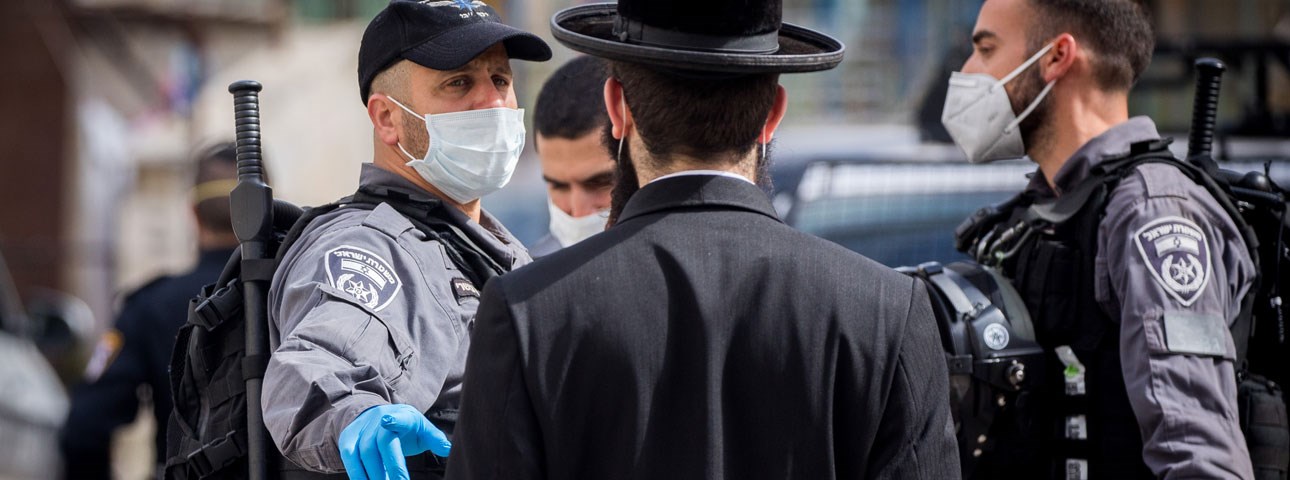
The Yom Kippur of the Ultra-Orthodox
Written By: Prof. Yedidia Z. Stern
The tragic results of initial faulty advice from leading rabbis is a wake-up call to Haredi Jews to start making their own decisions.

Israel's Democracy in the Time of Corona
Written By: Yohanan Plesner , Prof. Yuval Shany, Prof. Karnit Flug
IDI's management convened an online 'town hall' with Yohanan Plesner, Yuval Shany, Karnit Flug and Jesse Ferris to discuss the political, constitutional and economic fallout from the corona crisis, and IDI’s unique role in addressing it.

Ultra-Orthodox Society in Israel and the Coronavirus Pandemic
Written By: Dr. Gilad Malach
Dr. Gilad Malach held a press briefing focused on the coronavirus’ effect on the ultra-Orthodox in Israel and what might be the long term implications for employment, use of technology and the attitude towards official state authorities in this often isolated community.

Zoom's Scandalous Privacy Policy
IDI Expert Dr. Tehilla Shwartz Altshuler: "Now is the time for the appropriate regulatory authorities to act and protect the privacy of Zoom's users."

Court Systems Worldwide During the Coronavirus
Written By: Dr. Guy Lurie
Israel is not the only country in which the court system has been curtailed, or had its activity modified, as a result of the coronavirus pandemic. Many countries are taking such measures, while at the same time striving to refrain from harming citizen's basic right of available access to courts.
Included are several examples from around the world.

The Coronavirus: Israel's Economy and Economic Policy
Written By: Prof. Karnit Flug
Prof. Karnit Flug's press briefing today focued on the Coronavirus’ effect on the Israeli economy and policies that could mitigate the damage inflicted by the pandemic.

Curbing the Coronavirus Among the Ultra-Orthodox: Explainer
Written By: Dr. Gilad Malach, Leehe Friedman
How can we curb the spread of the coronavirus in the ultra-Orthodox community in Israel? IDI experts explain
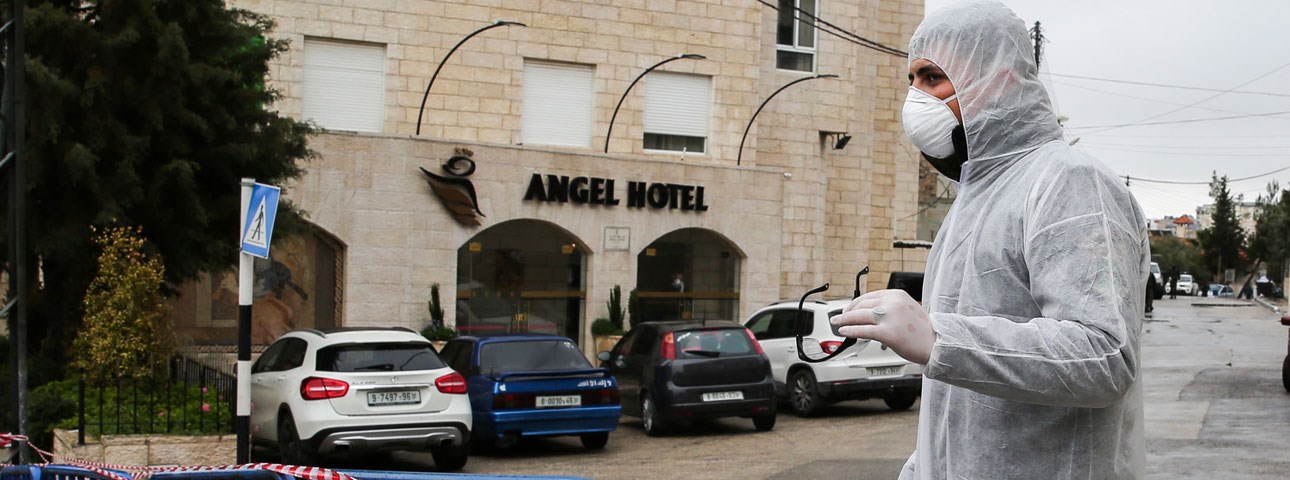
Coronavirus Special Survey
Special Coronavirus survey by the Israel Democracy Institute takes the Israeli pulse on the impact of the Coronavirus finds that 40% of Israelis feel they are experiencing high levels of stress and 65% are worried about their financial future.

76% of Israelis are Afraid of Getting Coronavirus
Written By: Prof. Tamar Hermann, Dr. Or Anabi
The Israeli Voice Index for March 2020 found that 76% of Israelis are concerned that they or a family member will contract the coronavirus – up from 34% in February.

A Jumbo-Size Government? Now? Really?
Written By: Prof. Ofer Kenig
Reports of a 30 to 34 minister cabinet in the works beg for a public outcry: Costly, inefficient and divisive is not what we need today.

Limit the Number of Ministers and Deputies
In light of the Movement Towards a National Emergency Government: 30 Ministers Would be Excessive in Comparison to other Parliamentary Democracies; The cap on the number of ministers and their deputy minister should remain in place.

What Should we be Studying in Times of Corona?
Written By: Dr. Tammy Hoffman
We should take advantage of the opportunity that the coronavirus presents to improve our children's education.

Surveillance During a Pandemic - International Comparison
Written By: Dr. Tehilla Shwartz Altshuler, Dr. Rachel Aridor-Hershkovitz
Israel has authorized its secret services to carry out extensive surveillance of civilians in the battle against the Coronavirus. In most other democracies there is dedicated legislation to deal with information gathering during the epidemic. IDI's experts complied a comparative review.

Speaker of the Knesset's Resignation – What Happens Next?
Written By: Dr. Amir Fuchs
Speaker of the Knesset Yuli Edelstein has resigned so as not to comply with the Supreme Court ruling to hold elections for a new speaker - what happens next? IDI’s Dr. Amir Fuchs explains

Speaker of the Knesset's Resignation - Statement
Yohanan Plesner, President of the Israel Democracy Institute, reacted to the Speaker of the Knesset Yuli Edelstein's resignation

A Unity Government to Deal with the Emergency?
Written By: Dr. Dana Blander, Prof. Ofer Kenig
Will the coronavirus crisis result in an unity government, which can, at least temporarily, resolve Israel's political deadlock? IDI experts explain.
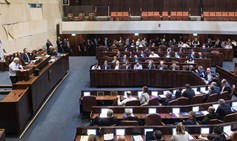
Parliaments Around the World
Written By: Dr. Chen Friedberg, Avital Friedman, Dr. Assaf Shapira, Dr. Shany Mor
As the Knesset struggles to resume its work, IDI took a look at how parliaments around the world are putting into place processes and mechanisms that enable them to operate during the coronavirus pandemic so they can fulfill the vital role they play in democracies.

Don’t Manage a Crisis under Threat of Investigation
Written By: Dr. Shuki Friedman
Calls for the establishment of a state commission of inquiry the day after the corona, in the midst of the crisis, can lead decision-makers to make decisions based on wrong considerations

Surveillance While the Coronavirus Pandemic is Raging
Written By: Dr. Tehilla Shwartz Altshuler
How is the coronavirus pandemic changing the way governments track their citizens? IDI expert takes a look around the world to see what policies countries are implementing.
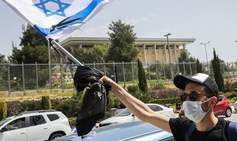
Politics in a Time of Corona
Written By: Yair Sheleg
Israel finds itself in an unprecedented political situation at a time it must face a worldwide pandemic.

The Functioning of the Knesset during the Coronavirus Emergency
Written By: Dr. Chen Friedberg, Avital Friedman, Dr. Assaf Shapira, Dr. Shany Mor
In this paper, we argue that in a public health emergency, such as the one we are experiencing now, when unprecedented means are being employed in the fight against COVID-19, the Knesset’s smooth functioning is even more essential, especially with regard to the need for strict and effective oversight of the government.

Surveillance of the Population: The Day after Corona
Written By: Dr. Tehilla Shwartz Altshuler
We must take advantage of the technological tools at our disposal to battle the coronavirus - without forfeiting our right to privacy

Virus and Democracy
Written By: Prof. Yedidia Z. Stern
Even a life-saving measure must be weighed against the threat it poses to democracy -- we do it all the time

The Knesset Must Resume its Work Immediately
Just as in parliaments around the world - the Israeli Knesset must resume its work.

The COVID-19 Crisis - Economic Impact and Economic Policies
Written By: Prof. Karnit Flug
What will be the economic ramifications of the coronavirus outbreak on the Israeli economy? Prof. Karnit Flug explains.

Convene the Knesset Plenum Without Delay - IDI Statement
IDI Statement to Knesset Speaker Yuli Edelstein: Convene the Knesset Plenum without delay; failure to do so blatantly exceeds the bounds of your office and constitutes an unacceptable disregard for basic rules of democracy

Coronavirus Crisis: Implications of ISA Tracking Citizens
Written By: Dr. Tehilla Shwartz Altshuler
The new regulations that allow the ISA to track citizens threatens our right to privacy, and set a dangerous precedent that could remain with us long after the COVID-19 crisis comes to an end

COVID-19: Initial Survey Findings on Self-Employed Workers in Israel
Written By: Daphna Aviram-Nitzan, Yarden Kedar
As of the beginning of December 2020, 75% self-employed workers were working, though 45% were working only part-time. Only 29% were working the same number of hours as before the crisis.

Amendments to the Party Financing Law: A Classic Conflict of Interest
Written By: Dr. Assaf Shapira
In a classic conflict of interests, the parties dip into the public coffers before every election, flouting any semblance of fiscal responsibility

Reimagining Education
Written By: Eli Hurvitz
COVID-19 is an opportunity to rethink education - and the success of a handful of teachers and students during the pandemic points the way forward to schooling that aligns with tomorrow's needs

In God They Trust
Written By: Dr. Gilad Malach
Dr. Gilad Malach, Director of the Ultra-Orthodox in Israel Program at the Israel Democracy Institute, discusses how the COVID pandemic has affected the internal dynamics of Israel's Haredi communities, their relationship with their political leadership and with government as a whole.

The Haredi Fears Behind the Opening of Yeshviot Amid COVID-19
Written By: Dr. Asaf Malchi
For many, the spiritual and educational dangers inherent in leaving large numbers of young people with no binding religious framework outweigh the health risks in keeping these institutions open

Arab Students at Higher Risk - Survey
Written By: Dr. Nasreen Haddad Haj-Yahya
Upon the opening of the new academic year a special national survey conducted by the Israel Democracy Institute and the Aharon Institute for Economic Policy found 22% of Arab students are considering quitting or taking a break from their studies, compared to 10% of Jewish students.

Don’t Let the IDF Sink into the Coronavirus Quicksand
Written By: Dr. Idit Shafran Gittleman, Prof. Amichai Cohen
The decision to call in the IDF is dealing a double blow to the country - it is both ineffective and is damaging the public’s trust in the IDF

Violence against Protestors is the Result of a Deliberate Plan to Undermine the Police
Written By: Yohanan Plesner
Instead of waging war on protesters, the government should be battling the virus.
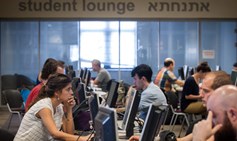
A Moment of Reckoning for the Education System
Written By: Dr. Tammy Hoffman
Israel is not adequately preparing its younger generation to be responsible citizens and must work now to improve its civics education curriculum.

Privacy Doesn’t Have to Die
Written By: Dr. Rachel Aridor-Hershkovitz
Privacy doesn't have to be sacrificed in order to protect citizens from the coronavirus - it too must be protected

